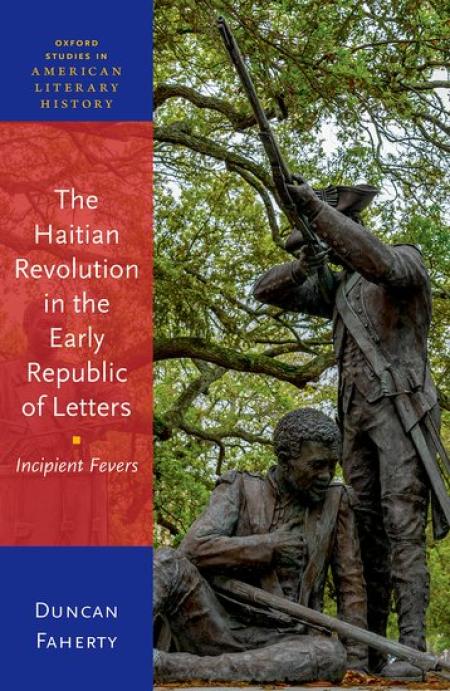
American Antiquarian Society
185 Salisbury Street
Worcester, MA 01609
United States
Concerns about Haiti suffused the early American print public sphere from the outbreak of the revolution in 1791 until well after its conclusion in 1804. Periodicals described the Haitian revolution with sentimental and sensationalist undertones which took new life in early U.S. fiction. In The Haitian Revolution in the Early Republic of Letters: Incipient Fevers, Duncan Faherty demonstrates that Haiti was not an enigma occasionally deployed by American writers, but rather the bellwether against which the prospects for the nation’s future were imagined and interrogated. Ideological representations of Haiti infected the imaginations of early American readers in ways that have yet to be accounted for in American literary history.
Unfortunately, scholars have often ignored how early Americans understood their nation as entwined with Haiti. Faherty counters this tacit disavowal by registering just how obsessed early American readers were with the seismic force of the Haitian Revolution and its aftershocks in the US domestic sphere. In unraveling how American literary history has silenced certain historical contexts around race, citizenship, belonging, and freedom, The Haitian Revolution in the Early Republic of Letters recuperates lost textual objects while redressing a crucial blind spot in American literary history. For myriad writers in the early Republic, Haiti was both unambiguously familiar and categorically incompatible. Simultaneously held fast and rejected, Haiti was the ever-present index of the United States: a distorted reflection of the Republic's past, a troubling echo of its present, and a nightmarish harbinger of divisive futures.

Duncan Faherty is associate professor of English & American studies at Queens College and The Graduate Center, CUNY. At the Graduate Center he is also a core faculty member of the Committee on Globalization and Social Change. Along with Ed White (Tulane University), he is the co-founder and co-director of the "Just Teach One" digital textual recovery project. He is the author of Remodeling the Nation: The Architecture of American Identity, 1776-1858, and his work has also appeared in American Literature, American Quarterly, Early American Literature, and Reviews in American History.

